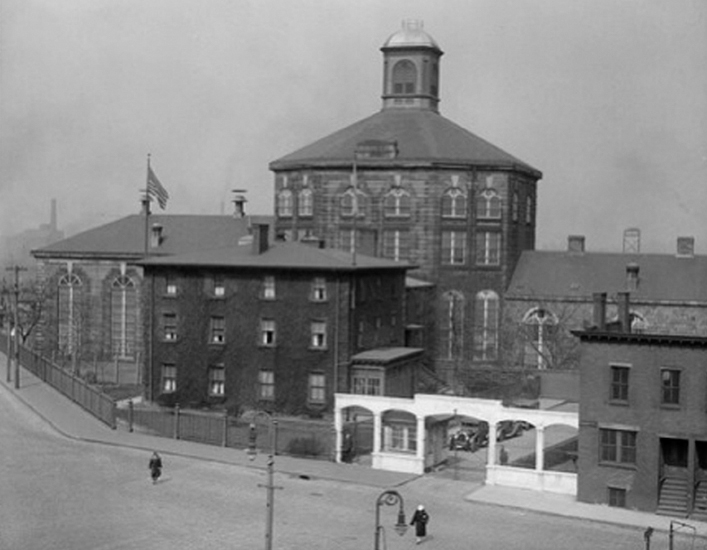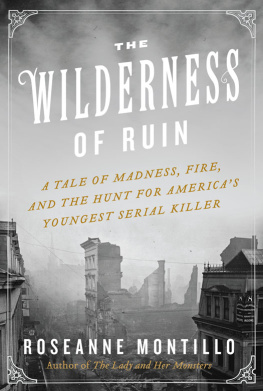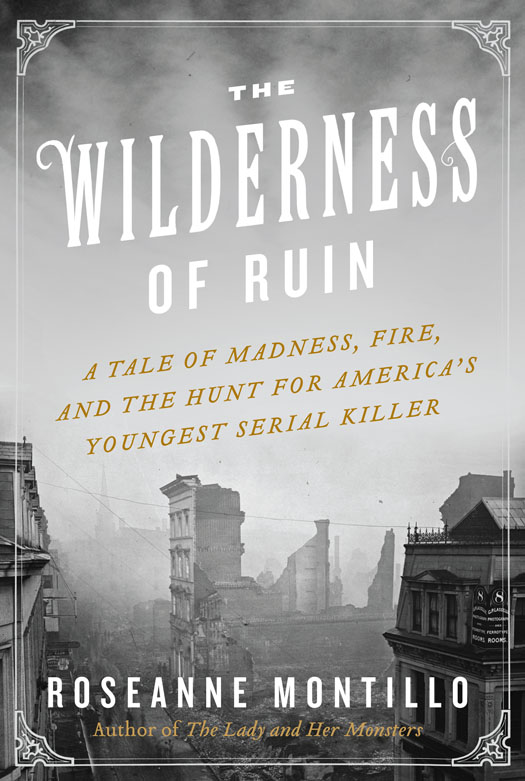CONTENTS
Guide
Dedicated to my family
O Boston, city of our Pride!
O Massachusetts, our loved State,
Thy faults we ever seek to hide,
We for thy perfect glory wait!
POEM READ BY REV. MINOT J. SAVAGE AT THE
DEATH OF GOVERNOR WILLIAM GASTON
I n the early hours of Thursday, August 1, 1929, crowds formed in front of the main gate of the Massachusetts State Prison in Charlestown, a sprawling compound of brick and granite encircled by a tall, wrought-iron gate. It was a warm morning and would become even more so as the temperatures reached as high as ninety-five degrees. Young mothers had risen early so they could make it to the prison, dragging their children along with them. Workers from the nearby factories had taken the day off, and the elderly men who had followed the notorious case for more than fifty years were lined up along the streets. Standing next to them on the sidewalk were numerous reporters from across the country, who did not seem to mind the heat. All of them had been drawn there by the fermenting curiosity of years past and by more recent tantalizing articles.
For days newspapers in the region had been speculating about whether the people of Boston would get the chance to see Jesse Harding Pomeroy again. Or, as the Boston Daily Globe wrote, would Pomeroy have a glimpse of the world denied him for 53 years. In recent days those residing near the prison, and in the city at large, had been waiting to hear if Jesse Pomeroy would be transferred from the state prison to the Bridgewater State Farm, nearly two hours to the south of Boston. Originally built to house paupers from the state hospitals, the Farm had now become a warehouse where hospitals, prisons, and other institutions dumped their so-called undesirables, those who could not be helped by routine treatments. On the evening of July 31, special editions were printed with headlines screaming that indeed, it would be so: he would go on the following morning.
Sixty-eight-year-old Pomeroy was not happy about his transfer. He had entered the Massachusetts State Prisonor the Massachusetts Bastille, as it was often referred towhen he was barely a teenager, and his cell, Number 19 in the South Wing, had become his home. He knew where each brick had a line running across it, most likely because he had chiseled it there himself. He had felt every wedge or crack the walls possessed with the tips of his aging fingers. He knew where his old cot sank beneath his weight, where his pillow had come loose at the seams; he knew which of the officers would be bringing him his meal simply by the distinct way that person had of jingling his key into the door. He knew what that meal consisted of, and how many minutes before the appointed hour it would arrive. Now he would have to leave it all behind in favor of a place where people donned not guns, as was customary, but white uniforms, as white as his eye.
Jesse was adamant that he deserved a full pardon and had not wanted to leave until it had been granted. He felt so strongly about it that, as a final act of defiance, hed even refused to pack his few belongings until a guard had made him do sofirst gently, then with a little more force. Jesses attorney, John Daly, had fought a valiant fight. He ardently believed that Jesse deserved to be pardoned because if he had been tried today instead of the 1870s, he would have been sent to a hospital for the mentally unsound, and not to the state penitentiary.
He was a victim of circumstance, Daly argued before those members who had agreed to hear his plea. He proclaimed that Pomeroys sentencing had occurred during an era when insanity was not considered to the degree that it was now. Daly was also in agreement with Pomeroy that he needed to be pardoned. He was so convinced of his argument that hed even taken the liberty of coordinating with the Salvation Army, who had assured him a home would be provided for Jesse upon release.
But something in Dalys eagerness and choice of words had unwittingly irked those on the panel deciding Jesses fate. At one point, Daly had described Pomeroys murderous actions as getting into trouble, which had seemed to trivialize the offenses. Dalys summations had also seemed to imply that the state owed Pomeroy not only his freedom, but an apology, which Jesse had been requesting for years. When the committee released their decision, they gave no validation to what Daly had expressed. If anything, the men felt that too much grace had already been extended on the prisoner. Pomeroy would not be pardoned; instead he was being transferred.
On this August morning, Pomeroy shed the prison uniform he had worn for fifty-three years and changed into a borrowed suit, dark in color and two sizes too big. It hung ungainly from his body, the fabric alien on his sagging skin. In his pockets, he carried a dollar and sixty-six cents, part of his earnings from legal speculations with the stock market, and when he spoke to the minister, his breath smelled of hot beef hash and coffee, which he had consumed as his last meal on the premises.
With the paperwork taken care of, the door to his cell opened and he was escorted into the corridor. It must have seemed odd that with a few twists of the key, he was able to step beyond the threshold of his cell, beyond the steel bars he had often tried to dislodge with contraband weapons. He walked slowly down the South Wing of the prison and followed the hallway that led to a large rotunda, where a guard post was located. He looked up and saw the cells arranged in a circular formation, heard the shouts from the prisoners that in isolation he had never heard before, the ding of steel bars as they opened and closed. On entering the prison, some visitors compared the institution to a busy beehive. And so it must have looked to Jesse when he stared upward.
As he walked out, he did not offer a thank-you, a salute, or any kind words to the warden, James L. Hogsett, or to the officers who had taken care of him during the past years. He merely pushed the tip of a newsboy cap over his eyes and readied to walk outside, where the crowds awaited him.
Guards posted near the prisons front staircase stared as the people surged forward by the locked gates; these officers patrolled the area holding bayonets and wooden clubs, making certain that a riot would not ensue. Taking drags from their cigarettes, reporters stood in the sun with pencils at the ready. It was a morning of tense silence, an editorial in the Boston EveningGlobe stated later that evening, describing the moments prior to Jesses arrival. Most of those who idled by the curb had been youngsters at the time of Jesses roaming, protected by their mothers, whose fears had overwhelmed them. Along with them there were now young mothers, sisters, and some much older individuals who had been Jesses schoolmates.

In 1634, the governor of Massachusetts, John Winthrop, ordered Castle Island in Boston Harbor to be used as a prison fortification. It was in 1803, following a series of highly publicized breakouts, that the Massachusetts Senate passed a bill to close Castle Island and build a new state prison on five acres of land on Lyndes Pond in Charlestown. Built entirely of granite, and surrounded by tall barbed-wire fencing, Jesse Pomeroy went on to spend more than half a century within it, becoming one of its most famous inmates. (The Charlestown Historical Society)











